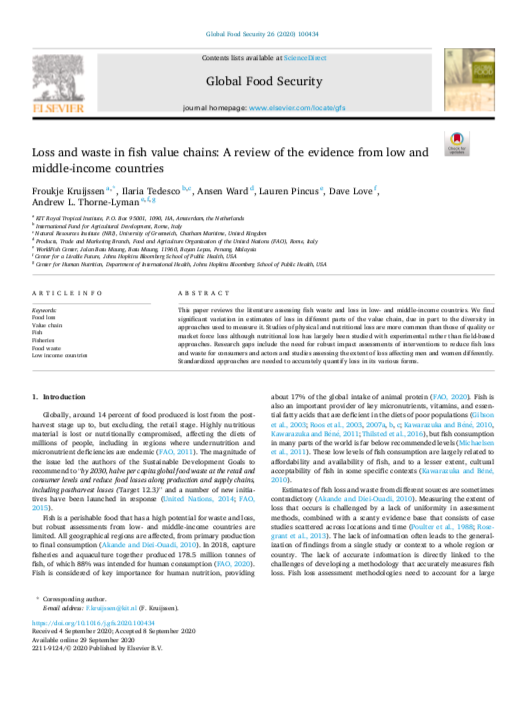Loss and waste in fish value chains: A review of the evidence from low and middle-income countries

ABSTRACT
This paper reviews the literature assessing fish waste and loss in low- and middle-income countries. We find significant variation in estimates of loss in different parts of the value chain, due in part to the diversity in approaches used to measure it. Studies of physical and nutritional loss are more common than those of quality or market force loss although nutritional loss has largely been studied with experimental rather than field-based approaches. Research gaps include the need for robust impact assessments of interventions to reduce fish loss and waste for consumers and actors and studies assessing the extent of loss affecting men and women differently. Standardized approaches are needed to accurately quantify loss in its various forms.